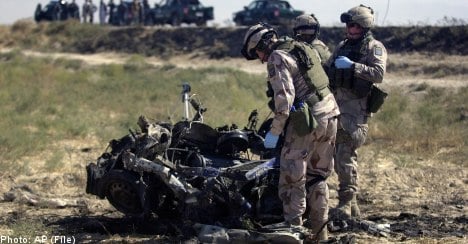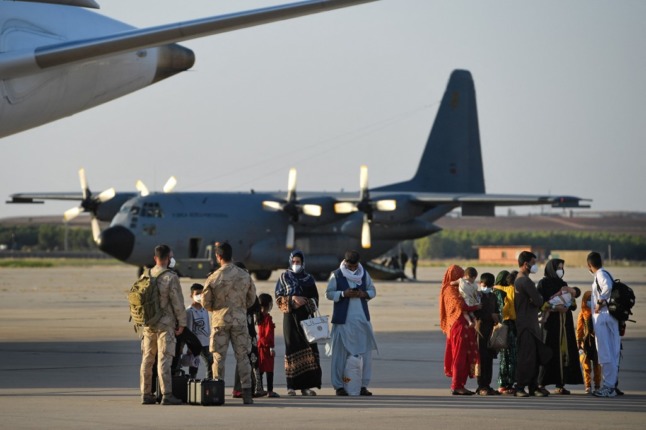As the Swedish troops have increasingly come under fire in the face of Afghan resistance, the issue of their presence in the country has become a tense political issue in Sweden.
“There have been a very large number of firefights, around 30,” said Colonel Gustaf Fahl of the Swedish Armed Forces to the Svenska Dagbladet (SvD) daily.
The Swedish military has made an effort to restrict the flow of information about the battles to the public.
“Every bullet fired against us is political dynamite,” sources at Swedish headquarters told the newspaper.
On around ten occasions the situation has become so precarious, that the Swedes have called in air support from the Nato-led Isaf force. On several occasions the fighters have opened fire in order to come to the Swedish soldiers’ aid.
Since mid-summer alone the Swedish troops have become embroiled in fighting on more than 20 occasions, which is a dramatic increase from previous months. Between July 18th and 26th, battles occurred day and night for eight days.
“It was hell on earth,” said an officer to SvD.
The primary reason that Swedish troops more often find themselves in the line of fire is a new set of tactics based on rooting out enemy units in Taliban strongholds, often with the help of the Afghan army and police.
In less than a month the Alliance government is set to present a motion, with which the parliament is set to be asked to extend the Afghanistan mandate and send a further two ambulance helicopters to support Swedish troops stationed in the country.
The Red-Green opposition made an election campaign promise that a withdrawal of the troops should begin in 2011 if they won the election. The Sweden Democrats have said that they could consider supporting the Red-Green motion.



 Please whitelist us to continue reading.
Please whitelist us to continue reading.
Member comments